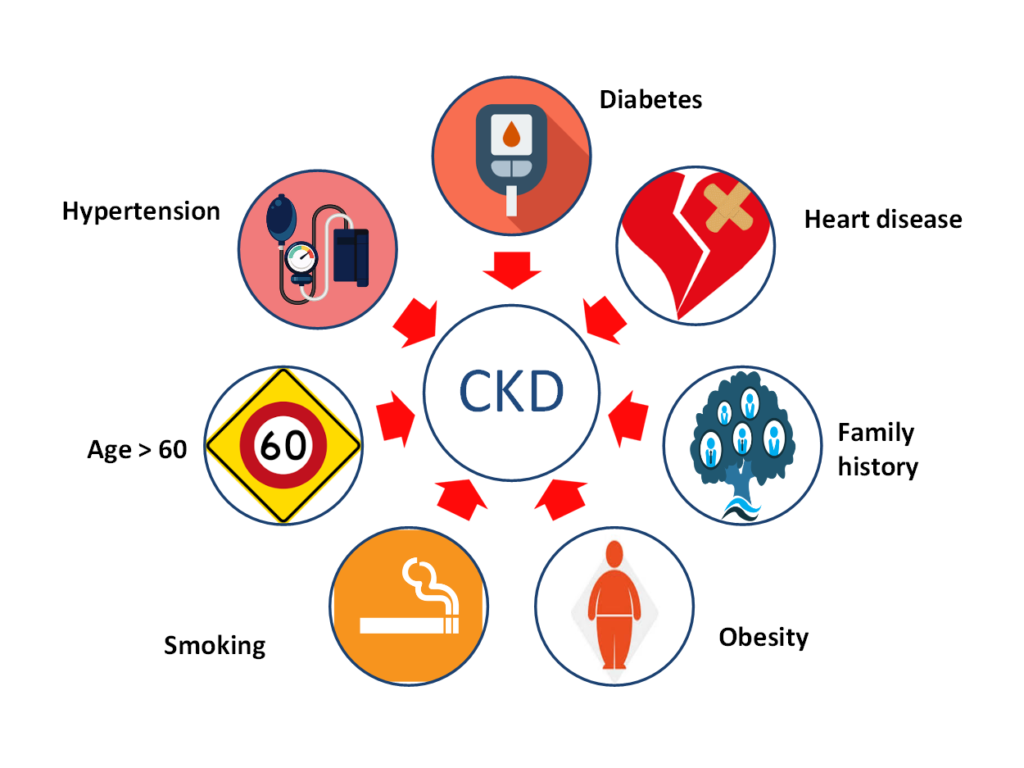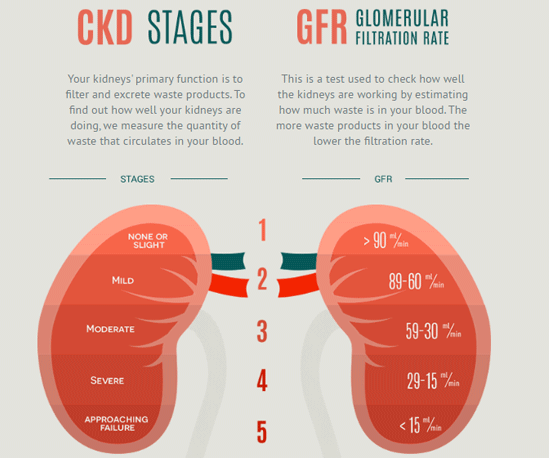Learn about your kidneys
Chronic kidney disease is called a ‘silent disease’ as there are often no warning signs. It is not uncommon for people to lose up to 90 per cent of their kidney function before getting any symptoms.
There are, however, some signs that may indicate reduced kidney function and it’s important to take note of them.
These can include:
- high blood pressure
- changes in the amount and number of times urine is passed
- changes in the appearance of your urine (for example, frothy or foaming urine)
- blood in your urine
- puffiness (in your legs, ankles or around your eyes)
- pain in your kidney area
- tiredness
- loss of appetite
- difficulty sleeping
- headaches
- itching
- breathlessness
- nausea and vomiting
- bad breath and a metallic taste in the mouth
- muscle cramps
These symptoms are very general and may be caused by other illnesses. However, if they are related to kidney disease they may gradually worsen as kidney function declines.
A. Stages of kidney disease
B. Risk factors

C. Getting tested for chronic kidney disease (CKD)
- If you are at risk, get regular tests to check for early kidney disease. Ask your doctor for blood or urine tests.
- Find it early to take preventative measures to stop kidney disease from progressing.
- If you have diabetes, get tested yearly for presence of kidney disease.
D. Tips to keep your kidneys healthy
- Lose weight if you are overweight. An ideal BMI(Body Mass Index) is between 18.5 – 25.
- Be active. Regular exercise and physical activity helps control blood sugar levels.
- Quit smoking.
- Drinking plenty of fluids keeps you well hydrated and your kidneys working well. Your doctor will suggest fluid restrictions as appropriate if you have kidney failure.
- Take medications as directed.
- Keep your blood pressure below 130/90, or ask your doctor what your ideal blood pressure target is.
- If you have diabetes, make sure your blood sugars are well controlled.
- Eat healthy and ensure your cholesterol is in the acceptable range.
- Eat foods lower in salt.
- Eat more fruits and vegetables. If you have kidney failure, make sure you follow dietary restrictions as suggested by your doctor.


